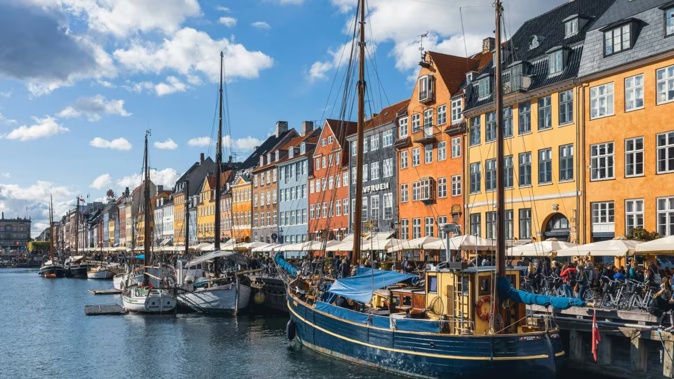
Wonderful Copenhagen, the Denmark capital’s tourism office, is launching a pilot programme that rewards visitors for going green. Starting on July 15, participants who engage in a sustainable activity will earn a gift of appreciation, such as a free kayak rental or coffee and Danish pastry.
The new initiative, CopenPay, is simple: partake in an eco-friendly endeavour and receive a perk from the two dozen businesses and institutions participating in the programme. It is open to visitors and residents.
For instance, you can collect plastic trash and turn it into jellyfish art at a workshop run by the National Gallery of Denmark. If you ride a bike or take public transport to the Amager Resource Centre, you can receive 20 extra minutes of ski time on CopenHill, an artificial slope on the power plant’s roof. Non-skiers can ride the elevator to the top free.
Volunteer at Oens Have, northern Europe’s largest urban garden, or the historic garden at the Karen Blixen Museum and enjoy a complimentary vegetarian meal or free museum admission, respectively.
“We want to turn tourism into a positive force for change in regards to sustainability,” said Rikke Holm Petersen, director of communications at Wonderful Copenhagen, “but we want tourists to have a memorable and fun experience as well.”
Holm Petersen said the programme was based on the honour system, though a few venues might ask for proof, such as a photo of your bike or a public transport ticket. It will run to August 11. Depending on its success, it could return next summer with more activities and for a longer stretch.
Destinations worldwide are experimenting with creative ways to promote environmental responsibility and engage visitors in their cause. With the Mālama Hawaiʻi Programme, travellers can earn a hotel discount or free night by volunteering. For example, guests who donate time to the Pacific Whale Foundation receive a free fourth night and breakfast for two at the Hana-Maui Resort.
In a related move, the Hawaii Tourism Authority unveiled a certification system last month that verifies companies committed to sustainable practices. Thirteen businesses have received the designation, including major airlines, tour boat companies, restaurants and the Bishop Museum.
In 2017, Palau instituted the Palau Pledge, which tourists must sign upon entering the country. The agreement to “preserve and protect” the islands is stamped in their passport.
Hotels are also incentivising guests to reduce their consumption. Properties affiliated with the Yotel chain’s Purple Goes Green plan offer visitors a food-and-beverage credit for each day they opt out of housekeeping. Best Western Hotels and Resorts has a similar programme, with guests earning points or a meal voucher.
Global Sustainable Tourism Council chief executive Randy Durband applauds programmes that reward good behaviour instead of guilting people into acting responsibly or scolding them for falling short.
“Copenhagen deserves some credit for not shaking a fist at bad behaviour, but trying to make it fun and have some incentives and benefits,” Durband said.
Holm Petersen has higher aspirations for CopenPay. She sees it as an agent of change.
“We hope visitors will feel inspired to make more conscious choices about green actions when they go home,” she said, “and that other destinations will do something similar.”
Take your Radio, Podcasts and Music with you









